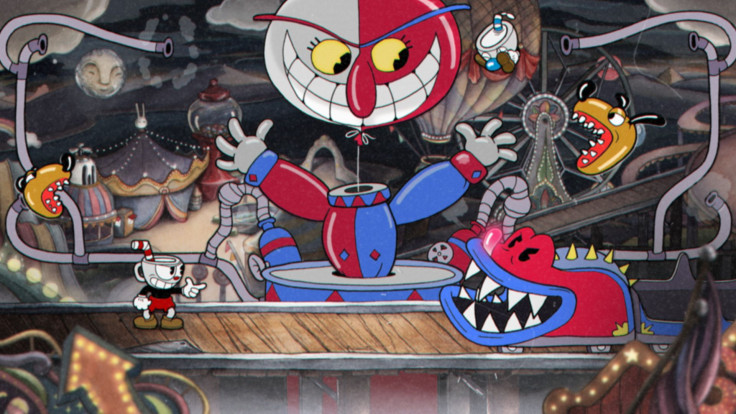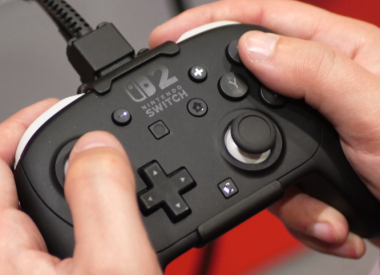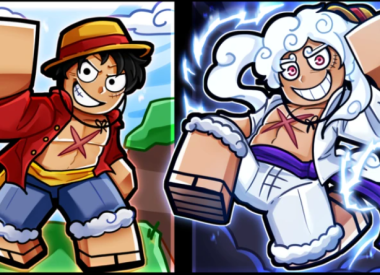In a new article on VentureBeat, games and tech journalist Dean Takahashi has responded to critics of his infamous Cuphead tutorial footage . In it, he addresses several issues with the Cuphead footage and the reaction to it, providing context not only for his gameplay, but for how that footage went viral, what the job of a games journalist actually entails, and whether or not unskillful gameplay needs an apology, too.
First, Takahashi addressedthose who were angry about his video: “It was a failure to communicate,” he said. “By a ratio of more than 12-to-1, the ratings on the YouTube video are negative. It wasn’t just the troglodytes of the internet who hated it. Most people hated it.”
Takahashi meant for the video to be funny, inviting viewers of the original article to laugh at his expense and labeling his own gameplay “shameful.” But the climate around gaming journalism is Very Serious these days, and none of the context provided by his original article was present in the video. The video itself is silent, with no commentary or funny footage of Takahashi laughing over his struggle, leaving viewers to provide their own spin.
The spin came courtesy of an Internet provocateur better known for self-owns than any piece of journalism. “He clipped it to the 2.5 minutes of the most damning inept gameplay, and he posted it to his followers,” Takahashi said. “He used me to condemn all game journalists, raising the smoldering issues around Gamergate and its focus on game journalism ethics. His post was political propaganda for the disenfranchised gamers, the sort who went from Gamergate to the alt-right and elected Donald Trump as president.”
After this spin, Takahashi’s gameplay video went from 10k videos to 600k views. The mob fell in line quite prettily, flinging abuse at Takahashi for the unbearable, insurmountable crime of being really badhis first time playing Cuphead .
“They called for my head. They said I should fuck myself. I should be fired. I had brain damage. I was retarded. I should kill myself. A couple of comments were racist. I’m not trying to overplay my victimhood, but you get the picture,” said Takahashi.
Takahashi tried to find the humor in the tweet storm, but it was admittedly hard to do. “[I]t was a bit hard to laugh, because they were so expert in their cruelty and so gleeful at my expense,” said Takahashi.
Worst of all was knowing that this came from “a viral post that represented the worst of fake news … where I was the target not because I was a victim, but because I had perpetrated a wrong against this mob.” The fake news? Gaming journalists suck at games, news that is fake because it maliciously provides no context for Takahashi’s career or even the video itself. The wrong? Sucking (publically) at games.
Crucially, that’s where Takahashi takes the most issue with the disproportionate response to his video. He apologizes for misreading the context in which his video landed, he apologizes for the anger some felt when watching his video, and he apologizes for disappointing those who expected better, but he refuses to apologize for posting footage of him being bad at a game.
“I wear my failures in games as a badge of honor, in part because it signals that I am a fan of games and I enjoy them. I don’t want to take the humor out of games and make us afraid to admit when we suck at them. It has helped me bond with so many strangers over the years,” Takahashi said.
Have you ever witnessed someone tilt during a game, or been tilted yourself? Over your own skill, over the lack of your party’s skill, over simple, basic fuck-ups you consider beneath you? Whatever game it is, it stops being fun. If you listen to footage of people getting tilted in any game of your choice, it’s the rage that’s notable. They’re playing a game and they’re not having any fun. What’s the fucking point?
There is something patently manipulative about positioning game journalists as fake gamers, especially over one piece of gameplay footage taken out of context. Don’t trust them , hisses the snake; trust me instead . But Takahashi has been playing games since the original Pong came out. “And he’s still that bad?!” screams the peanut gallery, ignoring any other example of Takahashi playing games competently on YouTube.
Yes. And so are some lifelong gamers you probably know, and they are no less gamers for that.
“My critics have said I’m like an outsider, a game journalist, who doesn’t play games. I am looking down on them and disparaging their hobby. They want someone ‘authentic’ instead. Guess what? Unskillful gaming is authentic,” said Takahashi.
At the end of the day, the uproar over Takahashi’s Cuphead video isn’t really about him or his video. It’s about a particular spin: game journalists are bad and you shouldn’t listen to them, because they are bad. In this case, they are bad because they are bad at games, as you can see by this cherry-picked footage provided free of any context but the one I’m inventing. Go, ye mobs, attack!
These machinations sound silly when broken down that way, and they are. “To me, bringing back a little civility, tolerance, and kindness to gaming and the internet is what we so desperately need,” Takahashi says at the end of his article.
That means acknowledging that some of us are bad at games but no less gamers for that, whether we are games journalists or stock boys at Macys. It means giving the benefit of the doubt rather than deliberately, cruelly spinning things in the worst possible light. With that done, the gaming community would be in a better, less toxic, less ugly place.


















